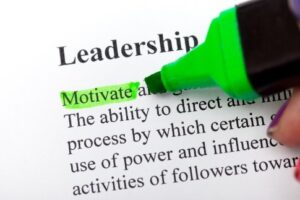“The true measure of leadership is influence – nothing more, nothing less” – John C. Maxwell
 There are possibly as many definitions of Leadership as there are HR professionals and a search in the Amazon books store on ‘Leadership’ would give you 98,089 results. Most of those books would probably say that the job of Leadership is about:
There are possibly as many definitions of Leadership as there are HR professionals and a search in the Amazon books store on ‘Leadership’ would give you 98,089 results. Most of those books would probably say that the job of Leadership is about:
- Articulating a vision
- Inspiring, engaging and motivating people
- Creating the right culture
- Getting the right people on board
To achieve all of that, the Leader will need to have a range of highly tuned skills and Leadership Development usually focuses on skills, competencies and techniques designed to equip people with the tools for the job.
Clearly, it is important for anyone in a position of leadership to have a wide range of skills in their toolkit and yet, it is not unusual to see an organisational leader trying to use a particular tool because they know what it is supposed to do and roughly how to use it but it just doesn’t work.
That is because there is another aspect of leadership that is an important precursor to developing and using skills effectively and that is about how the person is, their personal attributes or qualities that define how they understand and use the skills they develop.
John C. Maxwell states that “True Leadership always begins with the inner person” and it is the inner person that will determine how good a leader someone will be.
The question is often posed as to whether those attributes are innate or learned, whether leaders are born or made, as if it is an either/or choice. If it were the case that only some people are born with the attributes needed for leadership it would have significant implications for how leaders are selected.
The reality is that they are both born and made.
Advances in genetics and neuroscience seem to be telling us that many personal traits are inherited or at least, there is a predisposition inherited that needs to be developed by experience and even if you are born without a predisposition it is still possible to develop characteristics through interaction with the world around you.
That is not to say that all leaders have all the attributes that they need to be able to lead effectively and the proliferation of Leadership Development training would suggest that there is at least a perceived deficit among those either in or aspiring to leadership positions. We can probably all identify examples of good and not so good leaders from those we have had experience of in our careers.
So what are the attributes that a REAL leader needs to be able to inspire and motivate? Is it Charisma, Intelligence, Confidence, Intuition?
In his book ‘From Good to Great’, Jim Collins was clear that what really makes the difference in not just making a business great but maintaining that position is what he describes as Level 5 Leadership and the two most important attributes of a Level 5 Leader are “extreme personal humility with intense professional will (resolve)”.
The list of other attributes that could be considered essential for a REAL Leader is long:
Charisma, Adaptability, Intelligence, Confidence, Intuition, Honesty, Compassion, Determination, Enthusiasm, Self-Awareness, Loyalty, Empathy, Strategic, Fallibility, Humility, Strength, Curiosity, Integrity, Trustworthy, Resilience, Calmness, Drive, Decisiveness, Ambition, Visionary, Courage, Sensitivity, Self-Belief, Authenticity, Resolve, Sense of Purpose, Inspiring … and so on.
The good news is that people can, with application and commitment, develop and learn the attributes they need and that should be the first priority of Leadership Development. Many LD programmes fail to make significant difference because there is too much emphasis on skills without first making sure participants have the necessary ability to learn and implement those skills effectively.
Given that the list of potential attributes is so long, how can leadership programmes be expected to develop all of these in participants? We need to identify the core attributes that are essential for a great leader, a REAL Leader.
Those attributes are:
Sense of Purpose, Self-Belief, Courage, Intelligence, Empathy, Self-Awareness, Resilience and Humility
and those are the attributes that leadership programmes should focus on helping leaders to develop or strengthen.
What do you think? If you had to choose 8 attributes that are at the core of great leadership, what would they be?

